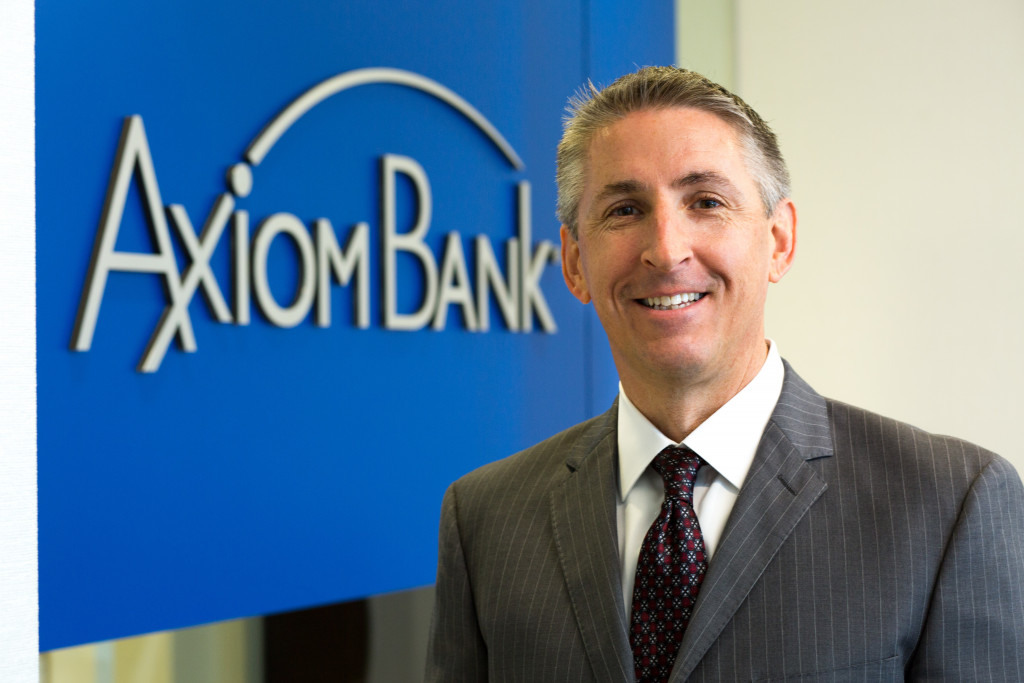Industry News
Syndication at Heart of SEC and Criminal Investigation into 1st Global Capital
July 31, 2018 New light was shed into the bankruptcy filing of 1st Global Capital this morning. The investigations by the SEC and the US Attorney’s office are related to possible securities law violations, “including the alleged offer and sale of unregistered securities, the alleged sale of securities by unregistered brokers, and the alleged commission of fraud in connection with the offer, purchase, and sale of securities.”
New light was shed into the bankruptcy filing of 1st Global Capital this morning. The investigations by the SEC and the US Attorney’s office are related to possible securities law violations, “including the alleged offer and sale of unregistered securities, the alleged sale of securities by unregistered brokers, and the alleged commission of fraud in connection with the offer, purchase, and sale of securities.”
The company is also being investigated by several states attorneys general where individuals were solicited to invest into merchant cash advance deals.
No charges have been filed in these investigations to-date, but they have prevented the company from being in a position to raise new capital.
There are more than $283 million in unsecured lender claims. Of the 20 largest creditors, all of them are individuals or their retirement accounts.
The company’s two main executives, Carl Ruderman and Steven A. Schwartz, relinquished their powers and resigned on Friday. Darice Lang, the company’s operations director, will stay on and report to the newly appointed Chief Restructuring Officer.
The company’s 1,000+ individual unsecured creditors (syndicates) loaned money to be invested in merchant cash advances and would receive a monthly statement to see how their money had been allocated. They also had access to a portal to track their accounts.
Of the $283 million owed to the individuals, the company’s unaudited financials reflect $238 million in A/R (primarily MCAs outstanding), $21 million of intercompany accounts, and $17.3 million in unrestricted cash.
1st Global generated $22.6 million in revenue in 2017 and $29.3 million in revenue in the first 6 months of 2018.
1 Global Capital Files Chapter 11
July 30, 2018
UPDATE: A joint motion filed this morning explained that the companies were forced to file bankruptcy “in order to address a sudden and acute liquidity crisis and to preserve their assets and business operations for the benefit of the individual lenders and all other constituencies. As a result of the investigations commenced by the US Attorney’s Office and Securities and Exchange Commission, with which the Debtors have been and will continue cooperating, the Debtors have ceased their pre-petition effort to raise capital.”
1 Global Capital LLC filed for Chapter 11 on Friday, according to a voluntary petition filed in the Southern District of Florida. The company’s estimated assets and liabilities exceed $100 million while the number of estimated creditors was listed as between 1,000 and 5,000.
A related company, 1 West Capital LLC, also filed for Chapter 11.
Greenberg Traurig, LLP has been retained to assist on the companies’ behalves.
In a joint motion filed this morning, both entities described themselves as “providing direct merchant cash advances to small businesses across the United States.”
Enova’s Small Business Financing Originations Drop
July 30, 2018Enova CEO David Fisher revealed last week that their small business financing operations had declined. “Our small business financing portfolio represented 8% of our total loan book at the end of Q2,” Fisher said on the July 26th earnings call. “We are remaining cautious on this space as the market rationalizes. As a result, our loan portfolio contracted 10% year-over-year and originations were down 23% year-over-year.”
Enova owns two small business financing subsidiaries, Headway Capital and The Business Backer.
While no official announcement has been made, Jim Salters, founder of The Business Backer, updated his LinkedIn profile to reflect that as of last month, he is no longer CEO of the company.
90% of PayPal Merchant Advances and Business Loans Are Performing On Pace
July 28, 2018 As of June 30, 90.6% of PayPal’s merchant advances and business loans were performing within the original expected repayment period, the company disclosed this week. That equated to $1.27 billion worth of deals. Only 4.2% of their merchants were more than 90 days behind their expected pace.
As of June 30, 90.6% of PayPal’s merchant advances and business loans were performing within the original expected repayment period, the company disclosed this week. That equated to $1.27 billion worth of deals. Only 4.2% of their merchants were more than 90 days behind their expected pace.
PayPal had $1.4 billion in outstanding merchant loans, advances, interest and fees receivables.
Swift business loans are charged off when they are more than 180 days past due. The Working Capital products (which can be loans or advances) are charged off when the merchant is 180 days past the company’s original expectations and no payment has been made in the last 60 days OR when the merchant is 360 days beyond the company’s original expectation.
Swift Business loans are generally repayable over 3-12 months. Working Capital advances are generally expected to be satisfied within 9-12 months.
After PayPal acquired Swift Financial, the company began marketing itself to small businesses as LoanBuilder. A flyer obtained by deBanked showed that it was being marketed with loan amounts of $5,000 to $500,000 that could be funded in as quick as 1 business day.
PayPal’s Actions Convey Continued Expansion of Lending Business
July 27, 2018PayPal announced its Q2 2018 earnings yesterday. Notably, total payment volume grew 27%, which is 1% higher than Q2 of last year. And the popular payment app Venmo, which is owned by PayPal, grew 78%, only slightly less than its growth of 80% from the last quarter. As expected by Wall Street analysts, revenue growth lagged total volume growth as Venmo is still largely unmonetized.
PayPal demonstrated continued commitment to its online lending division, PayPal Working Capital, when last month it made a significant investment in LendUp, a startup that offers loans to subprime consumers. This follows PayPal’s September 2017 acquisition of Swift Financial, for $183 million.
In yesterday’s Q2 earnings conference call, PayPal CEO Dan Schulman spoke about the company’s consumer lending division, PayPal Credit. He said that the company has strengthened its partnership with eBay by signing an agreement to extend its long-standing consumer financing offer to eBay’s marketplace.
“With this agreement,” Schulman said on the conference call, “eBay will continue to accept and promote PayPal Credit through 2025.”
As PayPal continues to grow both PayPal Credit and PayPal Working Capital, it does have the advantage of strong name recognition. After all, it started back in 1998 as one of the first major websites on the internet. To emphasize this, during the conference call, Schulman cited a recent ComScore study that reported that 52% of mobile consumers said they made more online purchases because PayPal was offered. And one-third of all PayPal mobile customers surveyed said they will abandon a purchase if PayPal is not offered as a checkout option.
Notorious Tampa Bay Loan Broker Likely Headed Back to Jail
July 27, 2018 Tampa Bay loan broker Victor Clavizzao pleaded guilty this week to one count of wire fraud, which could land him in prison for up to 20 years. This would not be his first time behind bars. In 2009, a federal judge sentenced him to five years for conspiring to fraudulently obtain nearly $6 million in mortgage loans.
Tampa Bay loan broker Victor Clavizzao pleaded guilty this week to one count of wire fraud, which could land him in prison for up to 20 years. This would not be his first time behind bars. In 2009, a federal judge sentenced him to five years for conspiring to fraudulently obtain nearly $6 million in mortgage loans.
This time, Clavizzao, 55, cheated a church congregation out of $16,350 that they had set aside to build a new church. According to a Tampa Bay Times story, shortly after leaving prison in 2014, Clavizzao was still on probation when he created Key Business Loans. Around the same time, he met husband and wife, Sam and Minnie Wright. Minnie Wright is the pastor of the Tampa Bay-area New Testament Outreach Holiness Church #2, and she asked Clavizzao if his company would be able to make a loan to their church.
According to the Tampa Bay Times story, Clavizzao said “Absolutely.”
Clavizzao, who used the named Victor Thomas, ingratiated himself with the Wrights and other church congregants and told them that not only could he help them obtain a $650,000 loan, he could also handle the purchase of the plot of land along with other details. The church gave Clavizzao a series of initial payments – for an architect and for an environment inspection of the land – and when the Wrights started getting suspicious, Clavizzao disappeared.
Last year, suspected of defrauding the Wrights and others, Clavizzao told Tampa Bay Times in a phone interview that his business, Key Business Loans, was completely legitimate.
“Knock yourself out, I’m not doing anything wrong,” he said, acknowledging that he discloses his criminal history to prospective borrowers. “Any person who has a problem about my past can choose to do business with me or not do business.”
In July of 2014, Clavizzao presented the Wrights with a “Proposal Letter for Guaranteed Business Purchase Loan” from Key Capital Commercial Funding, a New York City-based company he said he had ties with. The proposal outlined the terms of a 15-year, $650,000 loan at 5.1 percent interest. The Wrights signed it. However, what the Wrights did not know at the time was that there was no Key Capital Commercial Funding in New York City, or anywhere else.
In part because of persistent reporting on Clavizzao from Susan Taylor Martin at Tampa Bay Times, the Wrights were able to learn more about Clavizzao’s criminal past and the FBI got involved.
After Clavizzao’s recent guilty plea, he is currently out on bond pending his sentencing. A date has not been set.
Oakmont Capital Services Follows Top Talent to Minnesota
July 26, 2018
Yesterday, Oakmont Capital Services announced that it had hired 11 equipment finance veterans to staff its new office in Albany, Minnesota.
All of the new hires were previously working in the Equipment Finance division of Stearns Bank, a regional bank headquartered in Minnesota with retail bank locations throughout the state and in Arizona and Florida. Among banks with $2 to $10 billion in assets, Stearns Bank was named the top performing bank by American Banker for 2017 and 2018. The American Banker noted last year the bank’s expertise in equipment financing. Stearns Bank also received the number one ranking for top-performing community bank in the country from ICBA Independent Banker magazine in its May 2017 edition.
“I’m most excited about the depth of the knowledge base of the people we brought on,” said Founder of Oakmont, Joe Leonard, in reference to the new hires.
Leonard told deBanked that Oakmont was looking to expand all along, but the decision to locate its new office in Minnesota was largely based on the group of talent that became available from Stearns Bank. Leonard said there was management change at Stearns Bank, but that the bank still has a robust equipment finance team.
Oakland does equipment finance for the transportation, construction and medical industries, among others. It also provides working capital loans for business acquisitions, commercial real estate, debt consolidation, bridge Loans and export financing. Oakmont can make working capital loans from $300,000 to $20 million.
Leonard said that the bulk of Oakmont’s business is commercial equipment financing and SBA loans. And business is derived almost exclusively from referrals from equipment dealers and manufacturers.
The new hires include Daryn Lecy, who will serve as Vice President of Operations. He has experience helping to grow a portfolio from $140 million to $1.2 billion. He also has experience co-managing over 150 equipment finance employees. Lecy will be responsible for managing Oakmont’s new Minnesota office.
Jim Peach will be Vice President of Sales, Kayla Perling, Syndication Manager, Mikki Henkelman, Credit Manager, Tracey Elfering, Business Development Coordinator, and Jena Dirkes, Channel Development Officer. Chad Primus, Elise Linn, Jayme Gerads, Molly Sand and Michael McElroy will all serve as business development officers.
Founded in 1998, Oakland has its headquarters in West Chester, Pennsylvania. With the Minnesota office, it now employs roughly 40 people.
Axiom Bank Acquires Allied Affiliated Funding
July 12, 2018
Axiom Bank, a community bank with retail branches located inside Walmarts throughout Florida, announced this week that it has acquired a factoring company, Allied Affiliated Funding.
“Allied has a proven track record of success with accounts receivable lending, which fits well with Axiom’s broader business plan to diversify and expand our commercial lending operation,” said Axiom Bank President and CEO Daniel Davis. “Allied is also an excellent fit culturally for us. They have a strong management team with the expertise to help emerging companies and businesses that are seeking growth, as well as those that need working capital.”
Allied’s factoring product will add to Axiom Bank’s offering for its small business owners clients. Likewise, Axiom Bank’s capabilities in cash management services will provide new opportunities for Allied’s current commercial clients. Allied is based in Dallas, Texas.
“Axiom is a Florida-based nationally chartered bank with a strong entrepreneurial spirit that is focused on maximizing clients’ potential,” Allied Affiliated Funding CEO Clay Tramel. “Combining forces helps us to deliver on a shared vision with greater creativity by offering new exciting products, including asset-based lending, in the marketplace.”
Tramel will stay on as CEO of what will now be known as Axiom Factoring. Gen Merritt-Parikh will serve as President and be in charge of the day-to-day operations.
Acquiring other companies has been a cornerstone of Axiom Bank’s growth strategy, including branch expansions (there are now 24 branches) as well as the launch of AxiomGO, a mobile banking app. Axiom was also recently approved as an SBA preferred lender, a designation that allows the bank to independently approve and underwrite SBA 7(a) loans.
Established in 1962, Axiom Bank is based in central Florida and provides retail banking services, including checking, deposit, and money market accounts.





























